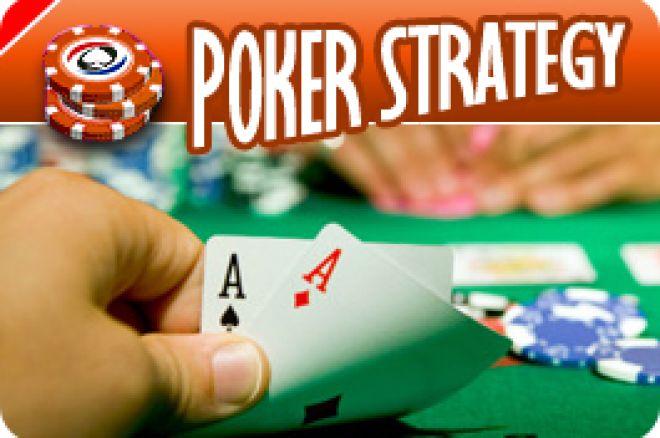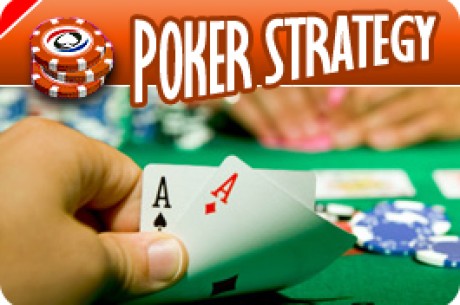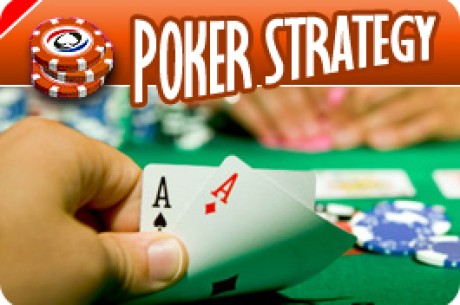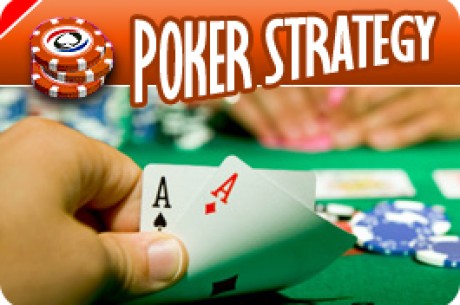Stud Poker Strategy: Sixth Street Play

I've written extensively about play on third street, fifth street and the river. These streets are where most of the difficult decisions are made. Even so, sixth street presents its own interesting problems from time to time.
First of all, recognize that most of the time, if you are in the hand on fifth street you will continue to play sixth street. The pot is usually fairly large when compared with the size of the bet. The bets double on the prior round so poor hands that don't improve often fold. So too do chasing hands that don't get better or that are too thin to be worth the double bet. On sixth street, however, hands that are still chasing generally have sufficient pot odds to continue for one more card.
Similarly, on sixth street, hands that are in the lead should generally continue to bet aggressively �C especially so if the hand is heads up as it tends to be in games with intermediate or better players. So if you judge yourself to have the higher pair or two pair against a player who is chasing with a short pair, or a draw to a straight, flush or full house, you should generally continue to bet �C making them pay to see their final card. Though many timid players often check with only a pair on sixth street, it is generally a mistake, since if you have read your opponent correctly and you have the better hand, you are as much as a three-to-one favorite to win the hand on the river. So make the bet.
Even so, the interesting part of poker strategy is the exceptional case. Here are two exceptions to consider.
The first exception comes when you have the better pair but when your cards are very dead and your opponent is drawing to a lot of possibilities and his cards seem very much alive. In stud, unlike in hold 'em, you need to both understand the cards that will improve your opponent's hand and keep track of the cards that have been folded, so you have a good idea of how live your cards are versus your opponent's cards.
Consider the following hand:
YOU HAVE: (K? 3?) K? 7? 8? 2?
YOUR OPPONENT HAS: ( x x ) Q? J? K? 6?
Imagine that six of the cards that give you two pair and a king have folded but no queens, jacks, tens, aces, sixes, or diamonds have folded. In that case, with so many of the cards you need to make two pair gone and so many of the cards necessary to improve your opponent's hand still out, and with so many ways that your opponent can improve to a better hand, you are almost surely behind, by as much as two-to-one against, and you should not bet. If your opponent bets you should not fold because of the large pot odds you're getting �C certainly better than two to one. You should call. But you certainly should not initiate the betting (unless you think your opponent may fold to your bet �C which would be highly unlikely unless he had never played poker before) since you expect to lose this hand most of the time.
You can surely contrive less extreme versions of the above where it is much closer but where you are still a likely underdog. The point is that while it makes sense in general to bet when you are likely holding the higher pair, you must pay attention to how live your cards are relative to your opponent's hand.
Similarly, though the general rule is that on sixth street you should check and call with a drawing hand, here is an exception.
Your opponent has been leading the whole way, showing an ace. You started with a pair of wired jacks and have called the whole way, knowing that your opponent sometimes bluffs with only an ace �C and then continues the bluff to fifth street. Three or four others went along for the ride until fifth street, but folded to his bet. You called because of the size of the pot with your hidden jacks. On sixth street, neither you nor your opponent shows a pair, but you have three cards to a straight on the board. You have no straight draw, just your pair of jacks in the hole and a scary board. Your opponent, showing his ace is still high and bets.
Don't call with this hand. And don't fold either. Raise! Here's why.
Your opponent may be betting as a bluff, hoping that you will finally fold with your underpair or no-pair hand. He may well figure that he's kept up his bluff this long he might as well carry it through to the river. Many players do exactly this.
If he is bluffing without a pair of aces your raise may be enough to get him to fold. Some players are actually looking for an excuse to fold at this stage �C a way to fold gracefully, as it were. Your raise shows him that he might well be wasting his time and two more bets by continuing with this bluff. And so he may concede, imagining that you must have caught your straight. He can fold without worrying, as some players do, that everyone else will suspect him of betting with garbage. Since you're representing a straight, he could be folding a pair of aces. Believe it or not, some players think this way.
But even if he actually has the pair of aces and had been value betting the whole way, he may well fold to your raise, knowing that if he is reading you correctly, he is drawing dead. He might well conclude that you have a straight and the best he can hit on the river is trips. A fold will save him two bets, he may surmise. And so he may well release his hand. Players who are tight often play like this, especially against another player whom they have deemed tight.
But even if he doesn't fold to your raise, and even if he has a well-concealed hand of aces up, having paired his other down card, this raise on sixth street won't cost you any more money than playing the hand conventionally.
The typical play here would be to call the guy's bet on sixth street. And then, also, you'd be likely to call his bet on the river �C since the pot would be so large that it would be a mistake to fold �C just in case he was still bluffing without a pair higher than your jacks. But with your raise, you will almost surely freeze his river bet. There's no point in betting, he may well conclude, since you'll fold if you missed but raise if you hit a monster. When he checks you check behind him.
The first scenario, with his bets and your calls on sixth street and the river costs you two bets. The second scenario, with his bet and your raise on sixth street, and no betting on the river, also costs you two bets.
Of course you can't make this raising move automatically and consistently, lest others get wise to your game. But it is a move that can be employed regularly to mix up your play �C especially so if you tend to be seen as a tight-aggressive player who rarely gets out of line.
Sixth street play is usually straightforward. But as you can see, it isn't automatic �C at least not some of the time.








